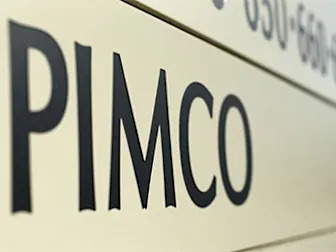
PIMCO Bond Manager Says Securitized Credit Remains Appealing
Securitized credit is popular with active bond fund managers. That may make it seem like a crowded trade, but David Braun, portfolio manager of PIMCO Active Bond ETF (BOND) , said the space is big enough and valuable enough to overweight the sector.
The $5.5 billion bond ETF’s mission is to beat the Bloomberg US Aggregate Bond index with a directive on monthly income, which makes it slightly different than most Pimco funds that focus on total return.
Securitized credit by market value compromises 60.7% of BOND, with agency mortgages, such as those issued by Fannie Mae and Freddie Mac, the biggest weight in that allocation.
He said the nominal yield of current coupon agency mortgages is above the investment grade corporate bond index, the opposite of usual. Agency mortgages are higher quality, rated AA versus corporate bond index’s BBB to A-minus and are more liquid. “And you're getting the same or better spread. So, we think that's a great trade,” he said.
BOND is also overweight non-agency mortgages, which don’t have the government guarantee, AAA-tranche of collateralized loan obligations and consumer asset-backed mortgages, such as credit-card loans and auto loans. BOND also has a small holding in non-agency commercial mortgage-backed securities, buying in that space selectively.
BOND Positioned for Resiliency
High interest-rate volatility has dampened some enthusiasm for agency debt, and some investors continue to shy away from CMBS over worries about office and retail space, he said. However, these two asset classes are more attractive than investment-grade corporate bonds on a risk-adjusted view given a backdrop of likely slowing U.S. growth, corporate bonds’ high valuations and continued uncertainty, he said, adding that the portfolio is positioned for resilience.
“We think diversifying in those five securitized sectors is a heck of a lot more intelligent from a risk-reward perspective than adding yield and income via just buying more triple-B corporates or high-yield corporates,” he said.
BOND’s allocation to corporate bonds and corporate spread duration is the lowest since Braun took over the strategy in 2017, at 22.8% by market value, he explained. The few corporate bonds in the portfolio are mostly financials, specifically systemically important banks in the U.S. and abroad.
BOND's portfolio is slightly overweight duration —which measures interest-rate sensitivity—at 6.45 years, versus the Aggregate bond index. Braun said rates are attractive at this point. He also thinks the steepening between the two- and 10-year yield curve is healthy after being inverted for so long. The fund was positioned for that steepening and, he said, bond investors will benefit because roll-down comes back into play as it rolls down an upward sloping yield curve.